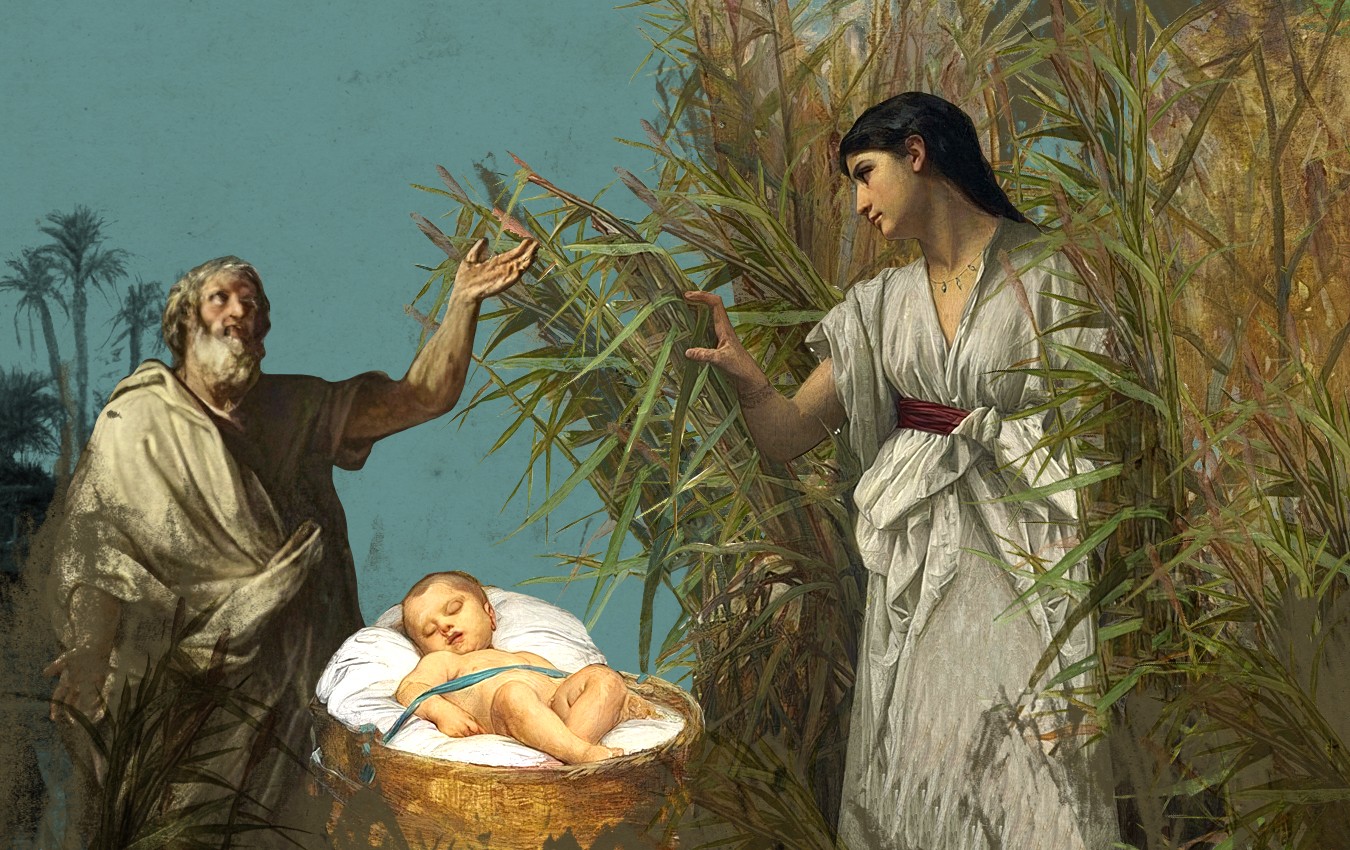Being Jewish
Commentary
Noah Meets Miriam

The past five years have been rife with challenge: familial losses, the Covid pandemic, October 7, the subsequent wars in Gaza and Lebanon and the alarming rise in antisemitism. Against this backdrop, I’ll be approaching Passover this year thinking of the biblical Miriam.
In Exodus, she watched over her baby brother, Moses, who had been placed in a teivah, a wicker basket, and gently set adrift on the Nile River. In modern Israeli poet Rivka Miriam’s retelling of this story, she imagines the teivah as a symbol of surviving calamity and of creative renewal, which we can interpret as a potential balm for our persistently troubled times.
As Covid was shutting down the world and quarantine became the norm, I was already in the midst of my own isolation—mourning the loss of both of my parents. On March 12, 2019, my father, David Zierler, was hit by a distracted truck driver and killed as he was making his way to a coffee shop to meet a friend.
At the end of January 2020, five days before the end of saying Kaddish for my father, my mother, Marion Zierler, died, too, from chronic kidney disease. I had been saying Kaddish for a full year and was on to the second when Covid engulfed New York City, where I live, and the rest of the world, subsuming my personal grief into a global drama.
To cope, I adopted a spiritual and pedagogical discipline, born of my scholarly focus. Each week, I translated a different grief- or prayer-related Hebrew poem and offered commentary on it in the form of a weekly dvar Torah at my local minyan. When Covid prevented the minyan from meeting in person, I began writing the commentary and emailing it to a list of readers. I dubbed this practice “Shir Hadash Shel Yom” (New Poem of the Day), and it has persisted to this day.
For Passover this year, which begins with the first seder on April 12, I have chosen to delve into a poem that draws together the Passover and Noah stories.
In Exodus, after the infant Moses grows too big to be hidden at home from the Egyptians who have been ordered to kill all Israelite male babies, his mother places him on the Nile in a teivah and sets Miriam by the riverbank to watch him.
But this is not the first mention of a teivah in the Bible. In Genesis, teivah refers to the ark that Noah built to save himself, his family and the animals from the flood. After all, the flood’s 40-day duration furnishes one explanation for the origin of the concept of quarantine—the word comes from the Italian word quarantena, which means 40 days—an experience to which we were subjected repeatedly during the pandemic.
This dual biblical usage of the word teivah receives poignant exploration in “Noah’s Ark Slid Down From the Mountains of Ararat,” a poem written in 2011 by Rivka Miriam, a daughter of Holocaust survivors and a major force behind the secular Israeli Torah study movement.
She depicts Noah’s teivah traveling across time and texts, from ancient Mesopotamia to imperial Egypt and, by extension, it seems to me, to our own day:
Noah’s ark slid down from the
mountains of Ararat into Miriam’s
small hands
And she placed Moses on the
padded mat of the ark
A mat made out of the fallen hairs
of animals, that were once soft
and downy
But which the weight of the years
had now made rough—
How it floated, Noah’s ark,
traverser of mountain and desert,
Crawler on the beds of the sea, to arrive, shriveled from years,
scarred like Jacob’s thigh tendon,
To this Nile, and to the little hands
of Miriam, who now mumbles
“alive and well”
As she places Moses inside.
As Rivka Miriam reimagines it, the teivah endures over time but is radically transformed. Her teivah bears scars that recall those that Jacob obtained after wrestling with the angel in Genesis, an event that left him limping but also with a new name—Yisra’el, the name given to the Jewish nation that descended from him. The teivah thus comes to stand for the history of the people of Israel, then and now: its traumas, continuities and blessings.
In the poem, as Miriam leans over the teivah carrying Moses, she mumbles the words “chai vekayam,” alive and well. These words bring to mind “David Melech Yisrael Chai Veka-yam” (David the King Is Alive and Well)—best known today as an iconic Zionist folksong, but originally a Talmudic phrase devised by Judah the Prince, the second-century rabbi and scholar, to announce a New Moon (Rosh Hashanah 25a), suggesting that like the waxing moon, the fortunes of Israel will eventually increase.
Taken together, the Noah and Exodus stories, the ubiquitous folksong and this poem by Rivka Miriam remind us that Jewish stories are often tales of surviving and thriving past hardship and loss.
Today, that’s a reminder we all can use.
Rabbi Wendy Zierler is the Sigmund Falk Professor of Modern Jewish Literature and Feminist Studies at the Hebrew Union College-Jewish Institute of Religion and the editor of Prooftexts: A Journal of Jewish Literary History. Her newest book, Going Out with Knots: My Two Kaddish Years with Hebrew Poetry, will be published later this year by the Jewish Publication Society.










 Facebook
Facebook Instagram
Instagram Twitter
Twitter
Janine Gorell says
Excellent!